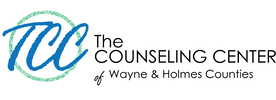By AMANDA GALLAGHER Staff Writer Published: January 6, 2013 4:00AM
WOOSTER -- A direct approach to dealing with life's many stressors is key to one local mental health care professional's strategies for self-care.
"It's done by intention and design," said Tom Brohm, a licensed professional clinical counselor and director of Employee Assistance Programs with The SourceOne Group.
Brohm said people make plans for certain aspects of their lives, such as how they're going to send their children to college, but "we don't even have (a) plan for how to care for ourselves."
"We need to write out a plan, (and) look at it on a daily basis," Brohm said.
Brohm offers a program on self-care strategies for employers and their employees that aims to inform people how to take care of themselves when they're experiencing stress from an increased workload or expectations, fatigue, lowered income, lack of employment or other internal or external stressors. Self-care strategies can also be helpful for an individual who has gone back to school, or is trying to balance two jobs along with family pressures, or someone who is dealing with unpredictable events in his or her life.
This first strategy for self-care is setting realistic expectations for oneself.
Brohm explains that it can be beneficial for a person to take the time to understand what he wants to accomplish and actually write down what is important.
"We just move from one pressure cooker to another ... we end up moving away from things that are important to the things that are urgent," said Brohm.
For example, Brohm explained that a person might think he is too busy to take a break or take a vacation from work.
"Do you need to work 80 hours a week? How long do you think a person emotionally ... (and) physically can sustain that?" he said.
Brohm went on to explain that if a person makes a point of managing his money better, he might find that he can work fewer hours each week and be dollars ahead.
One of the key elements of self-care is "to have people in our corner," said Brohm.
Brohm said that everyone needs supportive people in their lives to fill the role of adviser, encourager and even critic.
Another strategy is to eat right. Brohm said there are specific foods that fight stress, such as oatmeal, oranges, spinach, fish, nuts, flaxseed and herbal teas.
"If we eat right, we feel better," he said.
Brohm also recommends laughter, exercise and developing some relaxation techniques for combatting stress.
One technique, called "4x4x4x4," consists of inhaling for four seconds, holding it for four seconds, exhaling through the mouth for four seconds and keeping the lungs exhausted for four seconds, and then repeating the sequence four times.
Brohm also recommends progressive muscle relaxation, which entails tightening and releasing various muscle groups and also, taking time to do nothing.
"(People) don't give themselves a moment to do nothing," said Brohm. "We don't sit in silence anymore. We need to develop that skill set. Let's sit around and laugh and joke, we don't do that -- let's have a meal together."
Brohm believes that self-care strategies are beneficial to just about anyone, from factory workers to vice presidents of companies to housewives, as it will teach people to develop a skill set to do what is healthy for them.
He added that learning to take care of oneself can help people avoid heart attacks, anger, road rage and high blood pressure.


 RSS Feed
RSS Feed



